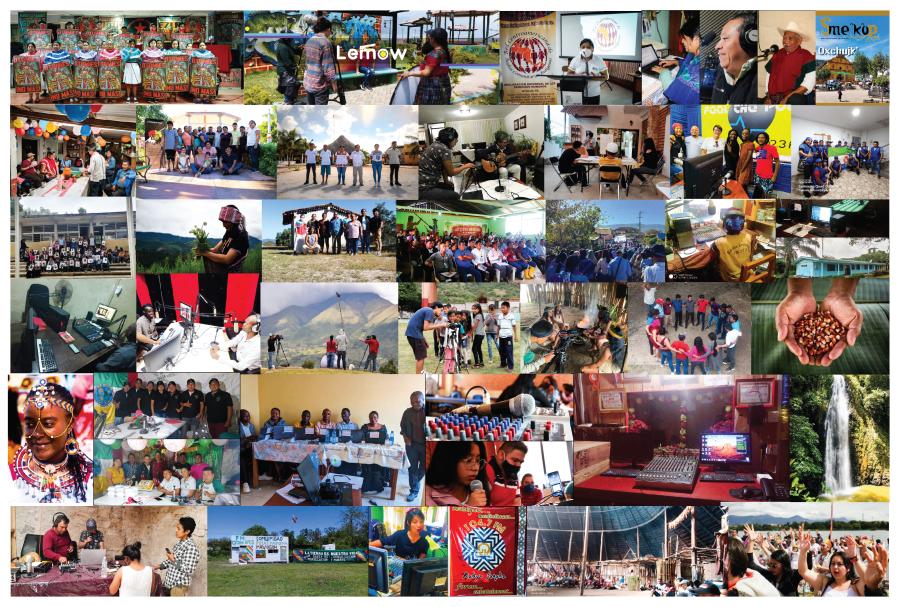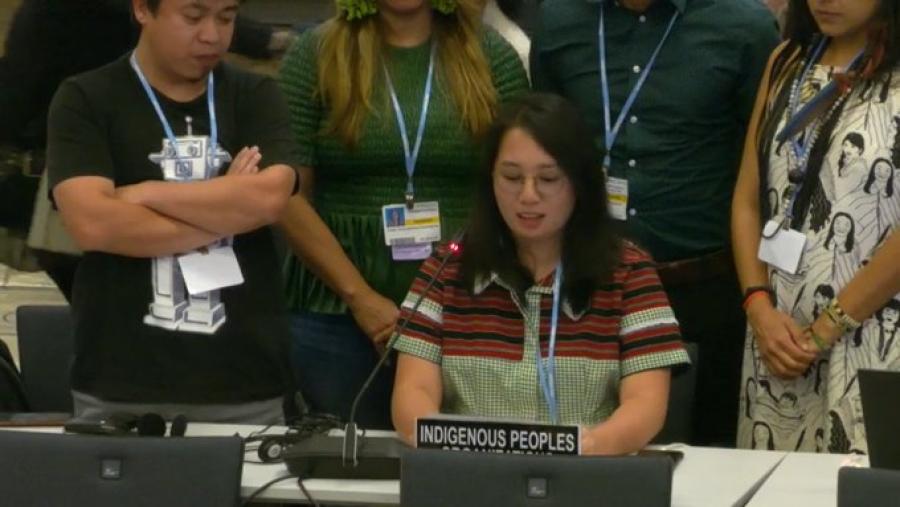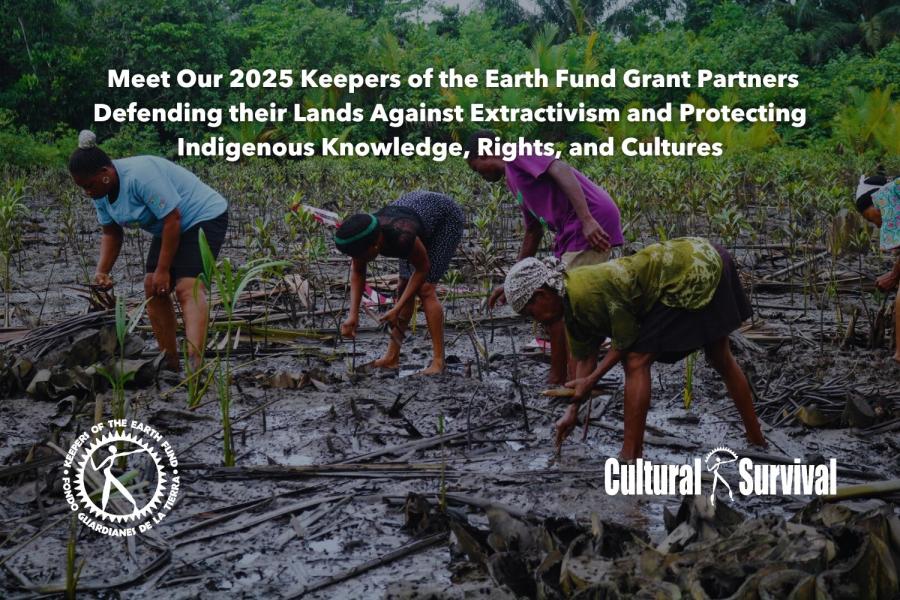
What is the Critical Raw Materials Act and why did it emerge?
For the European Union to realize its twin digital and green transitions, Critical Raw Materials (CRMs) are crucial, and the European Union is actively working to enhance its ability to extract, process, and recycle strategic raw materials, as well as diversify its import sources from outside the EU. As an enabling legislation, in March 2023, the European Commission released its proposal for the European Critical Raw Materials Act
How does this affect Indigenous Peoples?
Mining operations are negatively impacting Indigenous Peoples in Europe and elsewhere due to this increase in demand. According to Nature Sustainability, 54% of 5,097 mining projects globally involving 30 minerals used in renewable energy technologies are located on or near Indigenous Peoples' lands.
Indigenous Peoples are the key rightsholders in the European green transition!
Historically, Indigenous Peoples have been marginalized and their voices have been ignored, but a green transition is impossible without them. Despite constituting just over 6% of the world's population, they manage or control more than a quarter of its lands, which house about 80% of its remaining biodiversity. Additionally, the lands Indigenous Peoples manage store more than 24 percent of the world's carbon above ground.
Indigenous Peoples' demands for the European CRMA:
The Securing Indigenous Peoples’ Rights in the Green Economy (SIRGE) Coalition calls on the European Union to implement Free, Prior and Informed Consent (FPIC) in its CRM regulations and to comply with the United Nations Declaration on the Rights of Indigenous Peoples (UNDRIP) and ILO Convention 169 concerning Indigenous and Tribal Peoples. The CRMA should not rely on complementary instruments such as the Corporate Sustainability Due Diligence Directive. FPIC and UNDRIP should be incorporated directly into the CRMA.
Furthermore, the SIRGE Coalition urges European decision-makers to recognize and correct a number of flaws in the CRMA proposal, including:
- i) The voluntary certification schemes mentioned in the CRMA do not guarantee respect for human rights and environmental conservation; the CRM regulation must ensure that sourcing is carried out with respect of human rights and Indigenous Peoples' rights.
- ii) The fast-tracking of mining operations is not an acceptable option because it increases existing risks for Indigenous Peoples. The SIRGE Coalition's recommendation is to ensure meaningful stakeholder and rightsholder participation, consultation, and capacity building of public permitting authorities. This will make processes more efficient, inclusive, and shorter.
- iii) To reduce pressures for new mining on Indigenous lands and territories, the Act should include material reduction targets for Europe in addition to enhancing a circular/regenerative economy.
- (iv) The proposed governance board structure does not include meaningful participation of stakeholders and rights holders, such as Indigenous Peoples; this needs to be addressed.
It is critically important that policymakers place Indigenous rights, human rights, and environmental protection at the center of any green, just, and sustainable transition.
Learn more.
A Turning Point: The Critical Raw Materials Act's needs to be truly socially and environmentally just
On Thursday, September 14, 2023, there will be a vote to adopt the Critical Raw Materials Act! We have sent the following letter to EU legislators.
Dear MEP,
Is consent really necessary?
On 14 September, MEPs will vote on the ITRE Compromise text on the Commission proposal for Critical Raw Materials Regulation (CRMR). We call on you to support the inclusion of the Free Prior Informed Consent (FPIC) and Indigenous Peoples’ rights in the upcoming plenary vote.
- Over 50% of Energy Transition mining occurs on or near Indigenous Peoples' lands. Indigenous Peoples are at the bottom of the mineral value chain.
- European legislation can significantly affect Indigenous well-being and survival.
- Support the inclusion of FPIC and UNDRIP for collective Indigenous Peoples' rights.
- The absence of FPIC not only hurts Indigenous Peoples, but also may cause economic losses to companies and governments.
- 510 human rights allegations made against 115 companies in 12 years, with nearly 40% related to Indigenous Peoples in 2022.
- Support Amendments 11 and 23 for FPIC inclusion in CRMR Framework.
You can find our position paper on the CRMA here; and in this link, a number of civil society organisations throughout the world are calling for the EU to choose a global and just transition.
Finally, we ask for your support, because the European legislation on transition minerals will not only have a large impact on Indigenous People in and of itself, but it will also serve as a model at the international level. Unless Europe ensures that Indigenous Peoples' rights are respected and no one is left behind in the transition, other countries and regions will be less likely to do so.
Particularly, we call on you to vote in favour of Amendments 11 and 23 that ensure the inclusion of FPIC in the CRMR Framework.
Furthermore:
- Fossil fuels do not belong in a list of critical raw materials in 2023, vote no on Amendment 2 for including coking coal in the CRM list.
- For tin and uranium, there are no valid reasons to consider those raw materials critical. Corresponding amendments 5,7 should be discarded as they gravely impact the scope and impact of extractive industries included in the CRMR.
- Amendments 14-25 further strengthen the safeguarding of environmentally protected areas, the rights of Nature and Indigenous Peoples, in which the European Union has been at the absolute forefront in the past decades. We urge you to vote in favour of these amendments.
Please find here in this link the voting list we ask you to support.
Thank you for your consideration and support.
Signed by:
European Environmental Bureau, Seas At Risk, CAN Europe, Friends of the Earth Europe, Oxfam, Cultural Survival, SOMO, CIDSE, BUND (Friends of the Earth Germany), PowerShift Germany, Environmental Justice Foundation, Society for Threatened Peoples, Global Witness, FERN, Natural Resource Governance Institute, DiXi Group Ukraine, DKA Austria, Brot für die Welt, ECOS, ODG, Finnish Association for Nature Conservation, ZERO Portugal, WWF Germany, Business & Human Rights Resource Centre, Südwind Austria, Securing Indigenous Peoples' Rights in the Green Economy Coalition (SIRGE), CATAPA, Focus Slovenia, Milieudefensie - Friends of the Earth Netherlands, RREUSE, Friends of the Earth Spain, SETEM Catalunya, Global 2000 - Friends of the Earth Austria, INKOTA-netzwerk, World Economy, Ecology and Development, Association négaWatt France, France Nature Environment, Broederlijk Delen Belgium, Ecologistas en Acción Spain, London Mining Network



